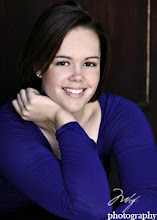As I am still twelve days shy of the legal voting age, I have watched this election as more of an outsider than most can: I am an American who understands the governmental process, and my future is certainly invested in the outcome of today’s election, but I can watch it with a strange kind of detachment as I won’t be casting a ballot. I've been observing the passionate, impressionable eighteen-to-twenty-four voting demographic as they cast their vote to determine the next President of this fine country.
Since the voting age was moved from 21 to 18, the new voters have yet to make much of an impact on an election, but this time, they could be a decisive part of the voting population. Their set of key principles is different from an older adult’s, their responsibilities are different, and their opinions on many key topics vary greatly from an older voter’s. From what I have observed, the tide of popular opinion has had the greatest affect on the red-vs-blue decision, with shows like Saturday Night Live and promotions from stores like Urban Outfitters making a greater impression than scholarly articles and candidate’s web sites. Granted, there are those students who are passionate as well as well researched, and they also play a large role in persuading those young voters who are less interested. The issues that matter most to young people – like the legal drinking age – are so drastically different than what matters most to a voter only a few years older – property taxes, or healthcare. Though I appreciate that the young people have a chance to be heard, it scares me that people who have yet to own a house, or care for a dog, or do their own taxes are making decisions that could change the nature of this country. I am not saying all young people are ignorant or ill-informed, but I am venturing that there are some questions they are unqualified to answer: one will undeniably better understand property taxes and how best to vote on them after they have actually paid them. One will better understand healthcare and how best to organize it once one has been seriously sick. In some states, one must be over 18 to own a gun, so how could someone younger than this really understand the micro-implications of owning a gun? I have heard far too many discussions between young voters saying they are just going to guess what is best when voting for propositions and the less-glossy categories on the ballot. Is guessing any way to make an important, informed decision? I am hardly advocating the white-landowning-male restrictions of the past, but I deeply hope I am wrong in my appraisal of how much research and time the young voters have devoted to this momentous decision. The right to vote makes everyone into an expert, and as unpopular as it may make me to say it, the under-twenty-one age group is hardly expert on mush at all. It strikes me as illogical that the drinking age (formerly 19 in most states) and the voting age (formerly 21) have switched in the last 30 years, because frankly, most people between those ages care more about the former than the latter.
Another popular heated debate for young people is the Electoral College: the usual logic is that whoever gets the most votes from the most people should win. While political pundits and political science professors alike have discussed this countless times, I also argue with this rationale. Some governmental historians have argued that the Framers of the Constitution created the Electoral College because they didn’t trust the masses to make the right choice for president, and sometimes, I don’t either. Even in times not wracked by economic and political turmoil, Americans hardly even seem to like each other, let alone trust each other with the most important decision many of them will ever get to make. Though the Electoral College is hardly a stopping point for stupidity and un-trustworthy voting, in whatever its many forms, I admire the Framers’ foresight. Especially in this presidential election, the candidate one chooses is more a reflection of one’s own hopes and dreams than an accurate reflection of who each candidate is as a person, what he or she is capable of, and who is best qualified to lead this nation. Just like youth and passion, hopes and dreams are shaky foundations to lay a vote -- and a presidency -- on. I just hope most that when people vote, whatever their age, they are thinking first of red-white-and-blue and not merely red-versus-blue.
Subscribe to:
Post Comments (Atom)

No comments:
Post a Comment